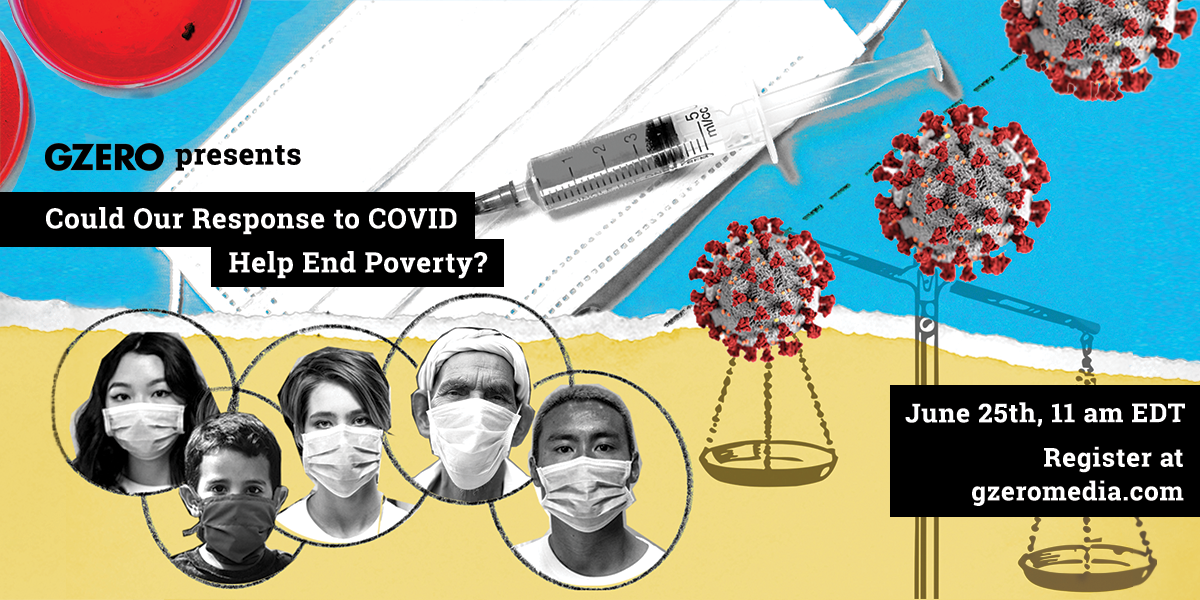Could Our Response to COVID Help End Poverty? A Special Town Hall Conversation on June 25th
Thursday, June 25, 2020, 11 am ET
#GZEROTownHall | Virtual Event - Register now
Panel:
- Vera Songwe, Executive Secretary, UN Economic Commission for Africa (just announced!)
- Ian Bremmer,President, Eurasia Group and GZERO Media
- Mark Suzman, CEO, Bill & Melinda Gates Foundation
- Moky Makura, Executive Director, Africa No Filter (moderator)
GZERO Media presents "Could Our Response to COVID-19 Help End Poverty?" a livestream event in partnership with the Bill & Melinda Gates Foundation and Eurasia Group, focused on the challenges and opportunities of virus eradication and economic recovery. This hour-long, interactive discussion will address the possibility of closing the inequality gap through coordinated and purposeful action at this moment of crisis.
Three key areas for conversation and audience feedback will be:
- ·Eradication starts with equality: Politics is the unavoidable reality of divvying up scarce national resources. However, in the era of COVID-19, the geopolitics of public health are already showing themselves to be especially rivalrous as governments rush to secure preferential access to the first available treatments. Ensuring COVID-19 treatments and vaccines reach all countries and not just the wealthiest nations is imperative for any long-term eradication plan.
- Mitigating a two-track world: What do we know about the state of the pandemic in low income countries, their response planning, and their resilience to the economic consequences? Coordinated strategies and interventions are fundamental to ensure an inclusive global response that avoids a two-track recovery. If well-executed, these efforts can guard against economic collapse in low- and middle-income nations, provide an opportunity to tackle wealth gaps, and encourage economic diversification.
- Cooperation consternation: The pandemic laid bare the realities and consequences of a leaderless, GZERO world, with responses both politically charged and inconsistent. As a result, coordination across multinational channels has suffered significantly. Can the lessons learned help bolster cooperation and create renewed support for global collaboration?
Once registered, you will receive details about the event (including the link to attend) by email.
Do you have questions for our panel? Tweet them to @gzeromedia, using the hashtag #GZEROTownHall.
